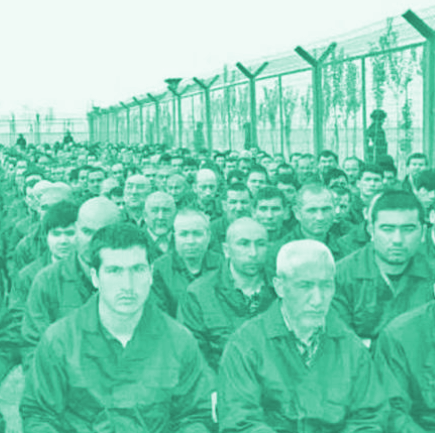Big firms with slave links
 A new report reveals China’s Uyghur community is being used as forced labour for companies including Apple, BMW, Nike, Adidas, Samsung and Sony.
A new report reveals China’s Uyghur community is being used as forced labour for companies including Apple, BMW, Nike, Adidas, Samsung and Sony.
The report from the Australian Strategic Policy Institute (ASPI) uses open-source Chinese language documentation, satellite imagery, media reporting and academic research, to link 83 well-known consumer brands to factories where Muslim minorities appear to be working in forced labour conditions across China.
The analysis found 80,000 Uyghur Muslim workers were transferred out of Xinjiang between 2017 and 2019, effectively being “bought” and “sold” by local governments and commercial brokers.
China has attracted international condemnation for its network of extrajudicial ‘re-education camps’ in Xinjiang.
The new report exposes a new phase in China’s social re-engineering campaign targeting minority citizens, as government officials now claim that all ‘trainees’ have ‘graduated’.
There is mounting evidence that many Uyghurs are now being forced to work in factories within Xinjiang. Additionally, it shows Chinese factories outside Xinjiang are also sourcing Uyghur workers under a revived, exploitative government-led labour transfer scheme. In fact, some factories appear to be using Uyghur workers sent directly from ‘re-education camps’.
Political indoctrination remains a key part of their job assignments.
In a case study included in the ASPI report, a factory in eastern China that manufactures shoes for US company Nike is shown equipped with watchtowers, barbed-wire fences and police guard boxes.
It is extremely difficult for Uyghurs to refuse or escape these work assignments, which are enmeshed with the apparatus of detention and political indoctrination both inside and outside of Xinjiang.
In addition to constant surveillance, the threat of arbitrary detention hangs over minority citizens who refuse their government-sponsored work assignments.
Most strikingly, local governments and private brokers are paid a price per head by the Xinjiang provincial government to organise the labour assignments.
The job transfers are now an integral part of the ‘re-education’ process, which the Chinese government calls ‘vocational training’.
A local government work report from 2019 reads: “For every batch [of workers] that is trained, a batch of employment will be arranged and a batch will be transferred. Those employed need to receive thorough ideological education and remain in their jobs”.
The ASPI report identifies 27 factories in nine Chinese provinces using Uyghur labour transferred from Xinjiang since 2017.
The full report is accessible in PDF form, here.
The full list of companies identified as directly or indirectly benefiting from the use of Uyghur workers as late as 2019 is as follows: Abercrombie & Fitch, Acer, Adidas, Alstom, Amazon, Apple, ASUS, BAIC Motor, BMW, Bombardier, Bosch, BYD, Calvin Klein, Candy, Carter’s, Cerruti 1881, Changan Automobile, Cisco, CRRC, Dell, Electrolux, Fila, Founder Group, GAC Group (automobiles), Gap, Geely Auto, General Electric, General Motors, Google, H&M, Haier, Hart Schaffner Marx, Hisense, Hitachi, HP, HTC, Huawei, iFlyTek, Jack & Jones, Jaguar, Japan Display Inc., L.L.Bean, Lacoste, Land Rover, Lenovo, LG, Li-Ning, Mayor, Meizu, Mercedes-Benz, MG, Microsoft, Mitsubishi, Mitsumi, Nike, Nintendo, Nokia, The North Face, Oculus, Oppo, Panasonic, Polo Ralph Lauren, Puma, Roewe, SAIC Motor, Samsung, SGMW, Sharp, Siemens, Skechers, Sony, TDK, Tommy Hilfiger, Toshiba, Tsinghua Tongfang, Uniqlo, Victoria’s Secret, Vivo, Volkswagen, Xiaomi, Zara, Zegna, ZTE. Some brands are linked with multiple factories.








 Print
Print